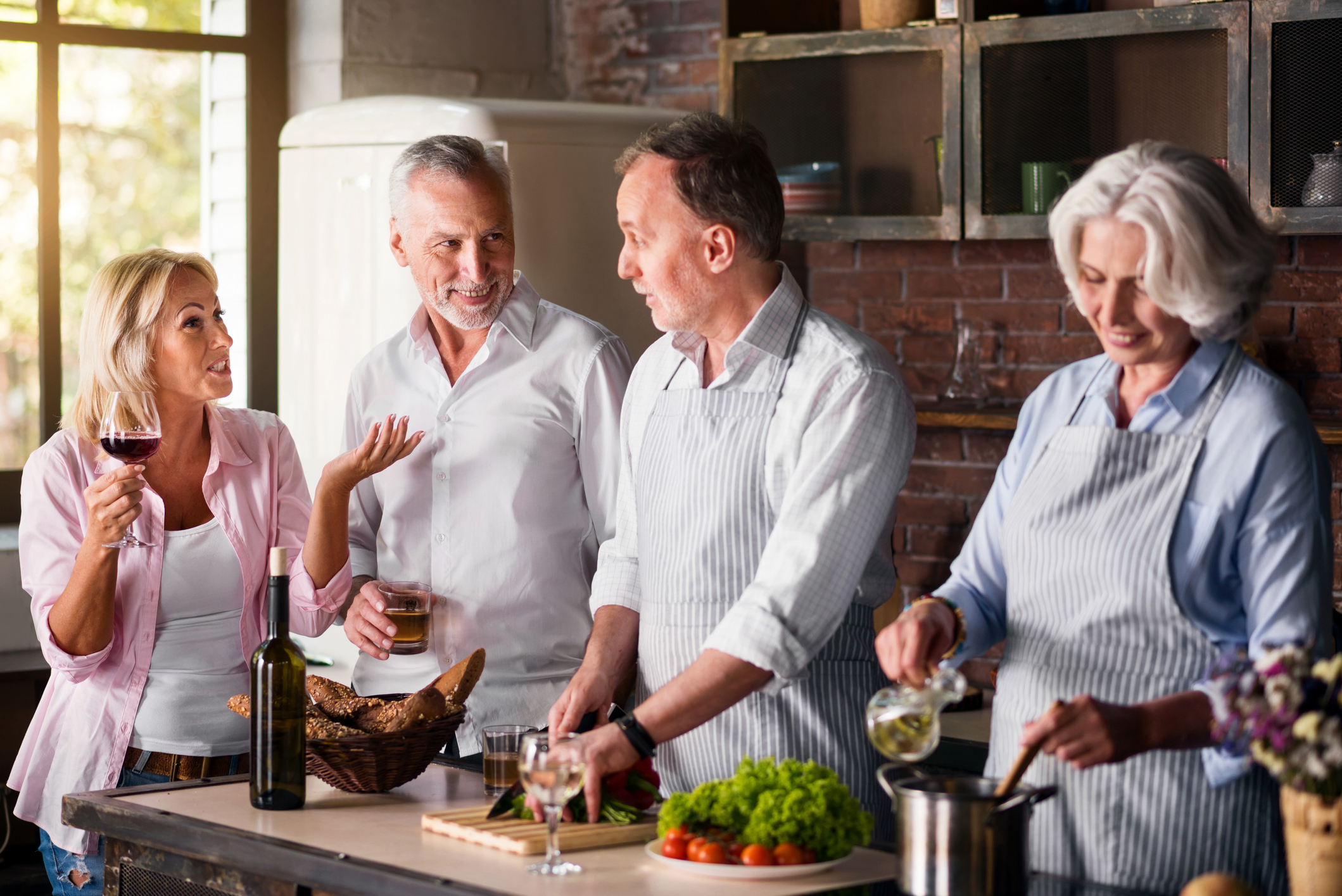So much of our health is related to the food we eat but shopping, prepping and cooking meals at home every day can seem a daunting task or not worth the bother, especially for older adults cooking only for themselves. But cooking and dining can also be opportunities for valuable social interaction when friends, families and neighbors gather to share the work and break bread together.
According to a recent McMaster Optimal Aging Portal blog, 54 percent of Canadians eat out once a week or more and 40 percent say they find eating out more convenient, they don’t have time to cook, they don’t know how or don’t enjoy cooking. Canadians also spend less time sitting down and savoring meals than people in other countries worldwide. In response to this growing problem of people not being able to prepare healthy meals on a budget and enjoy the social aspect of cooking and eating, more communities are creating collective kitchens or cooking clubs.
Gathering people in the community to learn new cooking techniques while staying active and engaged with others helps older adults avoid social isolation and promotes greater food security. Some programs are funded by local charities and organizations or receive additional private dollars. In a recent review of collective kitchen programs in the United Kingdom, programs geared to low-income individuals, certain ethnocultural groups, elderly adults or people with certain health problems, it was found that food clubs were valued most for creating social interaction.
Want to learn more about nutrition, shopping on a budget or developing new skills in the kitchen? If there isn’t a kitchen collective in your neck of the woods, why not take the initiative to start one in your community? Learn more about how to get up and running by following this link to the Alberta Health Services Collective Kitchen Manual.






Add Your Voice
0 Comments
Join the Discussion